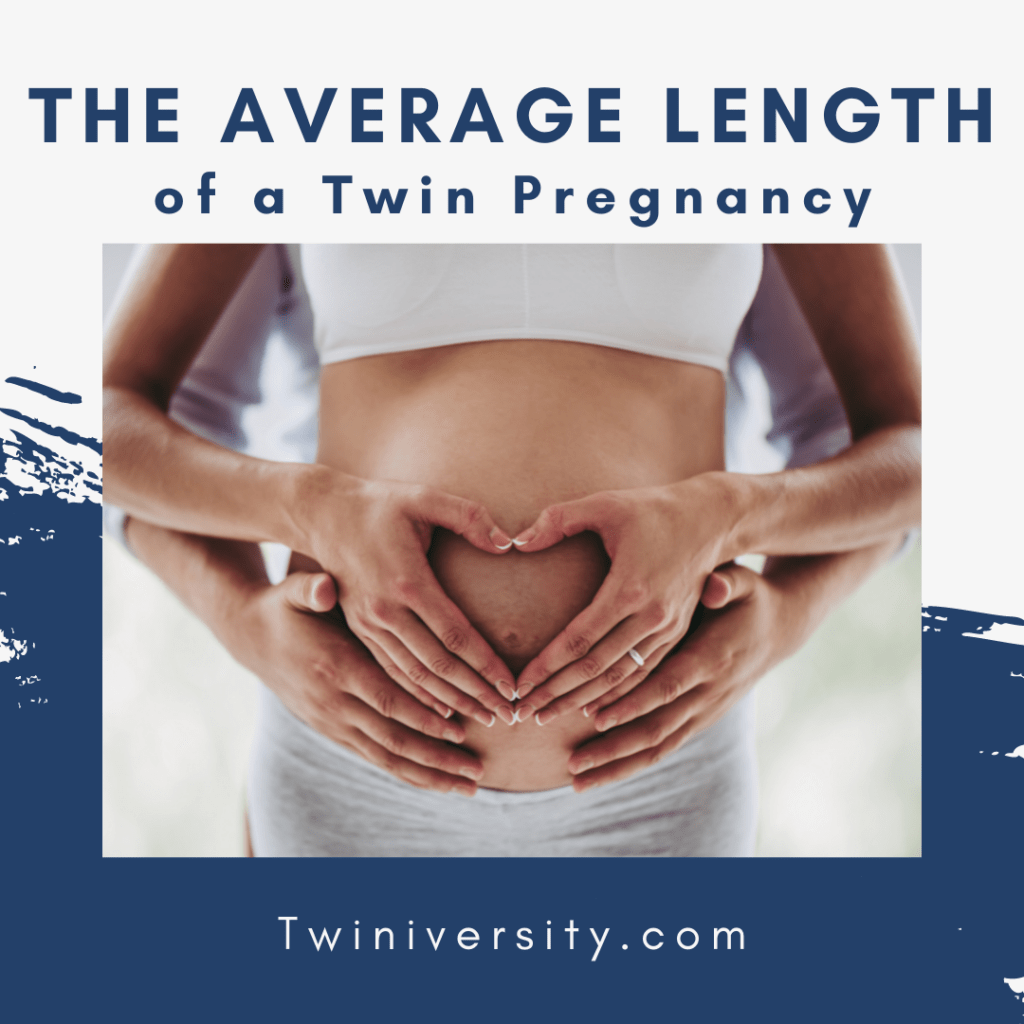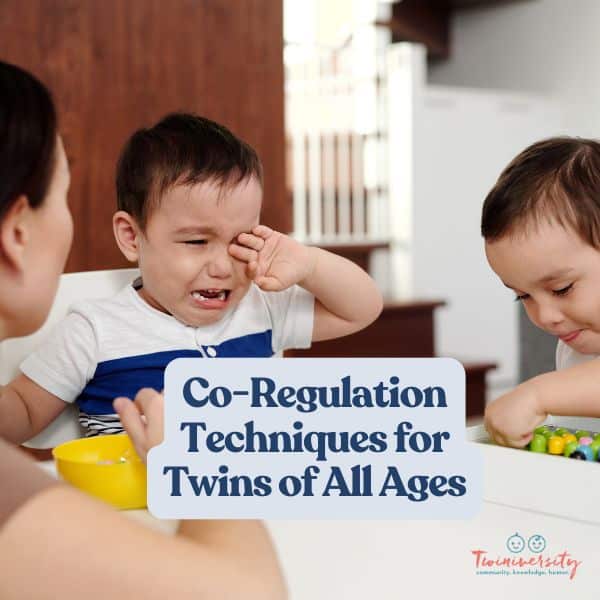Last updated on March 7th, 2024 at 11:55 am
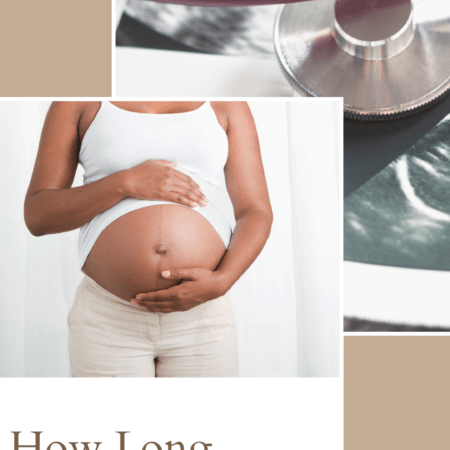


Being pregnant is an amazing time. It can be a time of celebration as soon as you learn you’re expecting. That being said, there are quite a few things to worry about when pregnant. Even more so when pregnant with twins, such as if the baby is healthy or not and how long is the average length of twin pregnancy. Sometimes these concerns are unnecessary, but other times they have a good reason behind them.
Let’s look at some of the main concerns for expecting mothers and how long twin pregnancies tend to last, on average.
Many women in their first pregnancies do not know what to expect when it comes to the average length of twin pregnancy, sometimes called twin gestation. We’ll take a look at the average length of a twin pregnancy.
It is important to know that there are different kinds of twins. There are identical twins which develop from a single embryo that splits into two separate ones. These two babies will have almost identical DNA, making them look very similar in appearance. There are also fraternal twins. These twins both develop from separate embryos, creating two babies. These two babies will share roughly 50% of their DNA, making them no more or less alike than any full-blood siblings.
Twin pregnancies can be dangerous for mothers and babies if they are high-risk pregnancies. There may be a higher chance of health problems arising during pregnancy or labor. This means that the average length of twin pregnancy is something that should be monitored closely.
Preterm labor is always a concern when you are pregnant, particularly during twin gestation.
What Is Considered a Full-Term Twin Pregnancy?
A full-term average length of twin pregnancy is 37 weeks. Many obstetricians will not allow an expecting twin mom to carry their twins past the 38-week mark. After that time, there is a slight rise in the risk of stillbirth with each subsequent week after 38 weeks along.
It is important to note that in monochorionic (identical twin) pregnancies, pregnancies with 1 placenta are often delivered between 34 and 37 weeks since these pregnancies are at higher risk. In contrast, dichorionic pregnancies are twin pregnancies with 2 placentas and obstetricians often recommend delivery between 37 and 39 weeks.
So, the word “term” may change depending on whether you are carrying identical twins or fraternal twins. You should ALWAYS follow your doctor’s orders and recommendations.

What Is the Average Length of a Twin Pregnancy?
About half of all twins are delivered before 37 weeks, with just 10% arriving before 32 weeks.
As it turns out most twins are born at about 36 weeks which is barely premature at all, so there is no need to worry just because you are carrying twins. Every pregnancy is different and there is no reason to worry about preterm labor until your doctor tells you to worry.
Keep in mind that 40 weeks is considered term for a singleton pregnancy.
What Might Cause Twins to Be Born Earlier Than the Due Date?
Twins can be born early for any number of reasons, just like a singleton. There could be growth restrictions, infection, pre-eclampsia, gestational diabetes, placenta abnormalities, among other things.
There is also spontaneous labor. The causes of spontaneous labor are widely unknown and unpredictable. If you think you are experiencing signs and symptoms of preterm labor it is important to contact your health care provider immediately.

What Might Cause Twins to Be Born Later Than the Due Date?
It is hard to know exactly why your twins aren’t coming before their due date. There are a few risk factors that might make an overdue delivery more likely.
- This is your first baby
- You, yourself were born past your own due date
- Other women in your family have gone past their due dates
- You have had other late babies
How Early Should You Expect Your Twins to Be Born?
There’s no way to tell exactly how early your twins may be born. This is because every pregnancy and woman is unique. Do yourself a favor and don’t compare your situation to someone else’s. Your doctor can give you a better idea of what the average length of a twin pregnancy would be for your specific situation (ie fraternal or identical twins), and an estimated due date. Remember that this doesn’t mean that is when your babies will come.
You should also be prepared for your due date to change early in your pregnancy. With twins, it can be difficult to measure your belly properly, especially before you know you are having twins. You might need to adjust your due date expectations once you get that first ultrasound confirming twins.
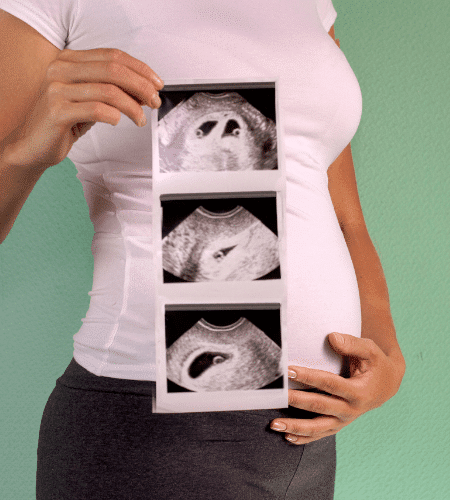
Will I Need to Visit My Doctor More Frequently With a Twin Pregnancy?
Women carrying twins will have more frequent visits to the doctor than women with single pregnancies. If your twins are sharing one placenta, you will automatically have a more frequent monitoring schedule. (hopkinsmedicine.org)
Prenatal care visits may not differ much from a singleton pregnancy until you get to the end of your second trimester if there are no complications. At that point, you’ll be seen more frequently because there is a higher risk of high blood pressure, pre-eclampsia, and preterm labor. (hopkinsmedicine.org)
Will I Be Able to Have a Vaginal Delivery With Twins?
Many women are able to deliver their twins vaginally. It is estimated that about one-third of twins are delivered this way. It should be noted that there is always a chance you will need a C-section, or even after one twin is delivered vaginally.
The decision on whether to attempt a vaginal delivery depends upon several things:
Your own health – You must be healthy enough to carry two children safely through childbirth.
The health of the unborn babies – If there is concern that either or both of your babies may be put in danger during labor, your doctor will opt for a C-section. This could happen at any time so it is best to be prepared just in case.
The position of your babies – If neither of your twins is had down, it is unlikely you will be able to try a vaginal delivery.
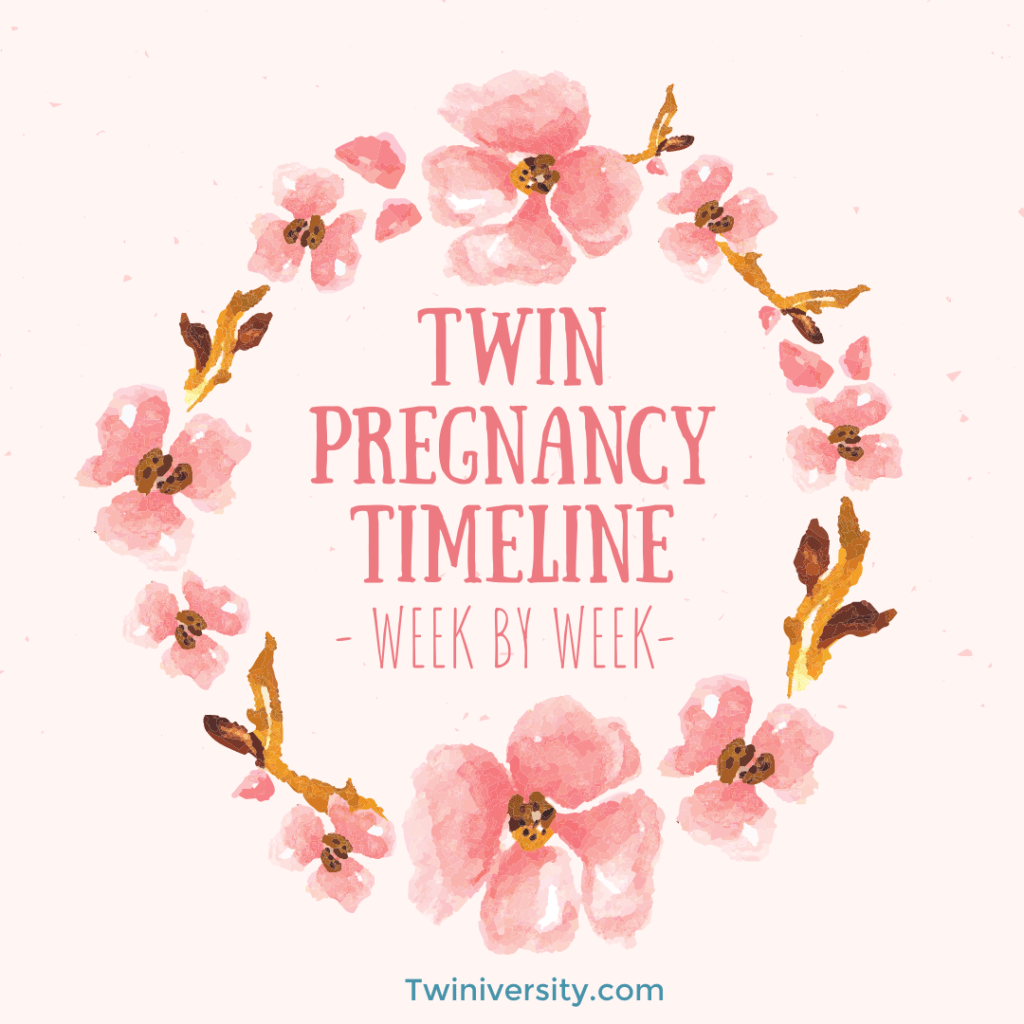
If you just heard that second heartbeat for the first time, or you know it’s been two for a while, you need to read our twin pregnancy week by week timeline to help you learn what happens week by week with twins. Click here to learn more… and while you’re at it, check out our expecting twins classes and twin parent coaching services.
Should Twins Be Induced if They Are Overdue?
If your twins are past due, then you and your doctor will need to decide whether or not it is best for labor to be induced. This will depend on a variety of different factors, such as the health of the babies and how far along they are, among other things.
As always, communicate with your doctor about your concerns and comfort throughout your pregnancy.
At What Point Should I Call My Doctor?
Contact your provider if you are experiencing any complications during your twin gestation. Also, if you have any reason to believe that your twins aren’t developing as they should be. Usually around the 32nd week of your twin pregnancy is when doctors will want to begin monitoring the health and development of your babies more closely.

Does Bed Rest Reduce the Risk of Preterm Delivery?
There isn’t any evidence that bed rest can reduce the risk of premature birth. While getting some rest is important, doctors don’t recommend giving up activities completely or to the extent that it causes stress for you or your unborn children. Additionally, being on bed rest will not prevent twins from coming early since this is typically caused by factors that the mother cannot control.
Are All Twin Pregnancies Preterm Deliveries?
It is reported by Johns Hopkins that slightly more than half of all twin pregnancies will result in preterm delivery. That means that more than half of all twin pregnancies are delivered before 37 weeks. Most of their deliveries average at 36 weeks gestation.
What Are the Risks of Preterm Delivery With Twins?
Preterm birth with twin gestation has been linked to increased rates of low-birth-weight infants, respiratory distress syndrome, jaundice, cerebral palsy, hearing loss, visual impairment, developmental delays, cognitive deficits, behavioral disorders, learning disabilities, autism spectrum disorder, attention deficit hyperactivity disorder, and epilepsy. It is possible that these conditions could affect your child’s future quality of life.
This sounds very scary, and it certainly can be. But the most important thing you can do for your unborn babies is to find a doctor you trust. Also, find a hospital to deliver your babies with the appropriate NICU staff to handle any spontaneous preterm birth during your twin gestation.
The right medical team will go a long way towards combatting the complications of premature delivery.
If you are a pregnant woman, we hope you found this article helpful in understanding what might cause twins to come early or late. If you have any questions or concerns regarding the average length of twin pregnancy, contact your health care provider for peace of mind.

